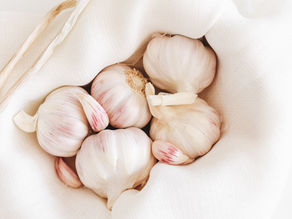
Stage 1 Parkinson's Nutrition Plan:
Eat a variety of foods from all food groups. This includes fruits, vegetables, whole grains, lean protein, and low-fat dairy.
Limit sugar intake. Sugar can worsen tremors and other symptoms of Parkinson's.
Reduce salt and sodium intake. High sodium intake can contribute to fluid retention and bloating, which can make movement more difficult.
Consume foods that contain antioxidants. Antioxidants help protect cells from damage, which may help slow the progression of Parkinson's. Good sources of antioxidants include fruits, vegetables, whole grains, nuts, and seeds.
Follow a diet that is low in fat, saturated fat, and cholesterol. A diet high in unhealthy fats can increase the risk of heart disease, which is a common complication of Parkinson's.
Drink alcohol only in moderation. Alcohol can worsen tremors and other symptoms of Parkinson's.
Here are some specific food recommendations for people with Parkinson's:
Fruits: Berries, citrus fruits, apples, pears, bananas, and melons
Vegetables: Dark green leafy vegetables, broccoli, carrots, tomatoes, and sweet potatoes
Whole grains: Brown rice, quinoa, whole-wheat bread, and pasta
Lean protein: Fish, chicken, turkey, beans, and lentils
Low-fat dairy: Milk, yogurt, and cheese


Here are some tips for eating well with Parkinson's:
Eat regular meals and snacks throughout the day. This will help keep your blood sugar levels stable and prevent you from getting too hungry.
Eat slowly and chew your food thoroughly. This will help you digest your food better and reduce the risk of choking.
Drink plenty of fluids. This will help prevent dehydration and constipation.
If you have trouble swallowing, try eating soft foods that are easy to chew. You may also want to cut your food into small pieces.
If you have nausea or vomiting, try eating bland foods that are easy on your stomach. You may also want to avoid eating fatty or spicy foods.
If you have constipation, try eating high-fiber foods such as fruits, vegetables, and whole grains. You may also want to drink plenty of fluids and exercise regularly.
It is important to talk to your doctor or a registered dietitian about creating a personalized nutrition plan for Parkinson's. They can help you make sure that you are getting the nutrients you need and avoiding foods that may worsen your symptoms.
VITAMIN B12 (AS METHYLCOBALAMIN)
The worlds leading Neurologists recommend Vitamin B12 for thriving with Parkinson's.
Did you know that methylcobalamin is the most dependable, bioavailable and absorbable form of vitamin B12? And taking into account that this is a vitamin that is highly important for healthy nerves and brain neurons, it should not come as a surprise that a lack of it is often accompanied by lethargy, lack of motivation and never-ending fatigue. Speaking of fatigue, vitamin B12 is massively vital for the production and maintenance of healthy levels of red blood cells.
These are the same cells that are involved in the transport of oxygen molecules from the lungs to throughout the various muscle cells that require them to generate energy. As such, you require a plentiful dose of this essential nutrient to have enough mental strength and will needed to push your limits on a daily basis.

















































































































